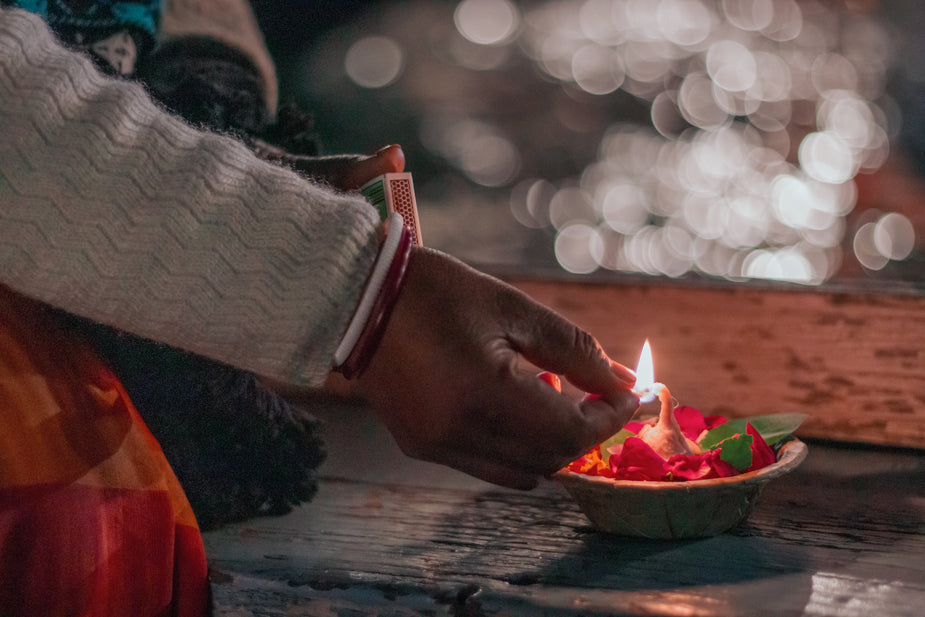
Celebrate Ugadi with Delish Meals: A Journey Through Tradition, Meaning, and Regional Delicacies
Share
Ugadi, also known as Yugadi, is one of the most widely celebrated festivals in India, especially in the Southern and Deccan regions. It marks the beginning of a new year according to the Hindu lunisolar calendar, and it's a time for renewal, new beginnings, and celebrating the triumph of good over evil. As we welcome this vibrant festival with open arms, it is an ideal time to explore its cultural significance, regional variations, and the special rituals that come with it.
At Delish Meals, we honor this tradition by offering delicious, authentic vegetarian meals that embody the spirit of Ugadi. Let’s take a deep dive into what Ugadi is all about, its various names across India, and how it is celebrated.
What is Ugadi? Meaning and Significance
Ugadi, which translates to “Yuga” (age) and “Adi” (beginning), signifies the start of a new era or cycle. It is the first day of Chaitra, the first month of the Hindu lunar calendar, and is considered the New Year’s Day for many regions of India. Ugadi marks the end of the cold season and the beginning of spring, bringing with it a renewed sense of energy and hope.
Ugadi has deep mythological and philosophical meanings. According to Hindu beliefs, it is the day when Lord Brahma, the creator of the universe, is said to have created the world. Therefore, it marks the beginning of all life on Earth and the cosmic cycle of creation. It is also a reminder of the ever-changing nature of time and encourages reflection on the past year, making it a perfect occasion to set new goals, intentions, and resolutions for the coming year.
In many cultures, the start of the new year is linked to seeking spiritual renewal, asking for blessings from deities for prosperity, good health, and a fruitful year. It also aligns with the seasonal shift, making it a time of joy, harvest, and abundance.
Regional Names for Ugadi
While Ugadi is celebrated with similar fervor across various parts of India, the name and specific customs can vary depending on the region. Here’s a look at how this festival is referred to in different states:
-
Andhra Pradesh, Telangana, and Karnataka: The festival is most commonly known as Ugadi.
-
Maharashtra: In Maharashtra, Ugadi is celebrated as Gudi Padwa, which marks the beginning of the new year and the harvest season. The celebration is marked by the raising of a decorated bamboo stick with a cloth, symbolizing victory and good fortune.
-
Goa: Goans call it Gudi Padwa, and the day is celebrated with special prayers and feasts.
-
Tamil Nadu: In Tamil Nadu, the festival is known as Puthandu, and it is celebrated with offerings to the deities and a grand feast.
-
Bengal: In West Bengal, it’s celebrated as Pohela Boishakh, marking the Bengali New Year with traditional rituals and cultural events.
-
Kerala: Known as Vishu, this festival also signifies the beginning of a new year, celebrated with rituals, fireworks, and a special feast.
Ugadi Rituals and Celebrations
Ugadi is not only a time for spiritual reflection but also a time for joy and festive traditions. The rituals are deeply symbolic, with each action meant to usher in a prosperous year. Let’s take a closer look at the key rituals of Ugadi and their cultural significance.
-
Cleaning and Decorating Homes:
Ugadi begins with the ritual of cleaning. Families clear away old items, remove clutter, and decorate their homes with fresh mango leaves, which are believed to bring good fortune. Mango leaves are often used to make beautiful torans (decorative hangings) on doorways to invite positive energy. Rangoli designs made of colored powders are also drawn in front of homes, symbolizing beauty, prosperity, and new beginnings. -
Pooja and Offerings:
On Ugadi morning, families gather for a pooja (prayer ceremony). This sacred ritual includes the chanting of mantras and offerings of flowers, fruits, and specially prepared dishes. The offerings are placed in front of a deity or an altar, inviting the blessings of the divine for the upcoming year.
The Ugadi Pachadi is a unique and important offering on this day, consisting of a mixture of six distinct tastes. These tastes are believed to represent the diversity of life itself and the balance required to live harmoniously: -
Sweetness (jaggery) symbolizing joy
-
Sourness (tamarind) for challenges
-
Salt for contentment
-
Bitterness (neem flowers) representing hardships
-
Pungency (green chilies) for overcoming anger
-
Tanginess (raw mango) symbolizing unexpected surprises
-
The act of consuming these diverse tastes reminds us that life offers both good and bad moments, and we must embrace all experiences with grace.
-
Special Feasts and Sweets:
Ugadi is synonymous with feasting! It is an occasion to indulge in a variety of delicious vegetarian dishes. Some of the key dishes include: -
Obbattu (Bobbatlu): A sweet flatbread stuffed with a mixture of lentils and jaggery. This dish is considered a delicacy and is served as a symbol of prosperity.
-
Puliyodarai (Tamarind Rice): A tangy rice preparation, usually paired with crispy fried papad.
-
Chitranna (Lemon Rice): A flavorful rice dish made with freshly squeezed lemon, green chilies, and seasoned with mustard seeds.
-
Kosambari: A refreshing lentil salad, offering a healthy and light option amidst the rich and indulgent meals.
-
These dishes are not only a treat for the taste buds but also serve as symbols of good health, prosperity, and the flavors of life.
-
New Clothes and Exchanging Greetings:
Wearing new clothes during Ugadi is a way of symbolizing a fresh start, leaving behind the old and embracing the new. People often wear vibrant, colorful attire to mark the joyous occasion. The exchange of Ugadi Greetings or Yugadi Greetings between family and friends reflects the bond of love and togetherness. The most common greeting is, "Ugadi Subhakankshalu" in Telugu, which means "Wishing you a prosperous Ugadi." -
Cultural Programs and Community Events:
Ugadi is a time to celebrate with loved ones, often involving community events such as dance performances, folk music, and theatrical performances. In major cities across India, street processions and cultural shows bring people together in joyous celebration. If you’re in the GTA/Toronto area, participating in such events is a great way to experience the cultural richness of Ugadi.
Ugadi and the Importance of Vegetarianism
At Delish Meals, we fully embrace the principles of ahimsa (non-violence) and sustainable eating. Ugadi's celebration of vegetarian food reflects the idea that a plant-based diet brings harmony and balance to life. The dishes we prepare for Ugadi are made from the freshest seasonal ingredients, aligning with the festival’s spirit of renewal, health, and abundance.
Eco-Friendly Celebrations: How to Celebrate Ugadi Sustainably
As we celebrate Ugadi, it’s also essential to think about the environment. Here are some tips for celebrating Ugadi in an eco-friendly way:
-
Opt for eco-friendly decorations, such as natural flowers and organic rangoli powders.
-
Use reusable or biodegradable plates and cups during the celebrations.
-
Choose plant-based meals to minimize the ecological footprint and promote sustainability.
-
Reduce waste by planning portion sizes carefully and reusing leftovers in innovative ways.
Conclusion
Ugadi is not just a festival; it’s a celebration of life itself, of new beginnings, joy, and the promise of a brighter future. As we celebrate this vibrant occasion, we invite you to join us at Delish Meals in honoring this timeless tradition with delicious, authentic, and nutritious vegetarian meals. Let’s embrace the year ahead with open hearts, fresh beginnings, and delicious food that brings people together.
Happy Ugadi from all of us at Delish Meals, your go-to vegetarian food delivery service in the GTA/Toronto area!
